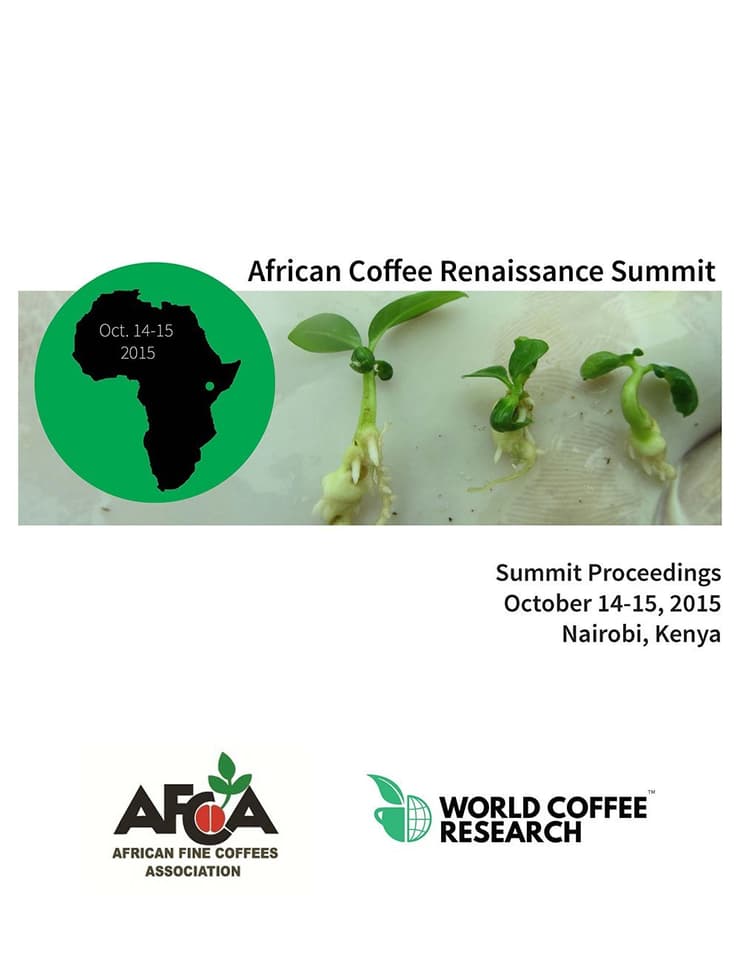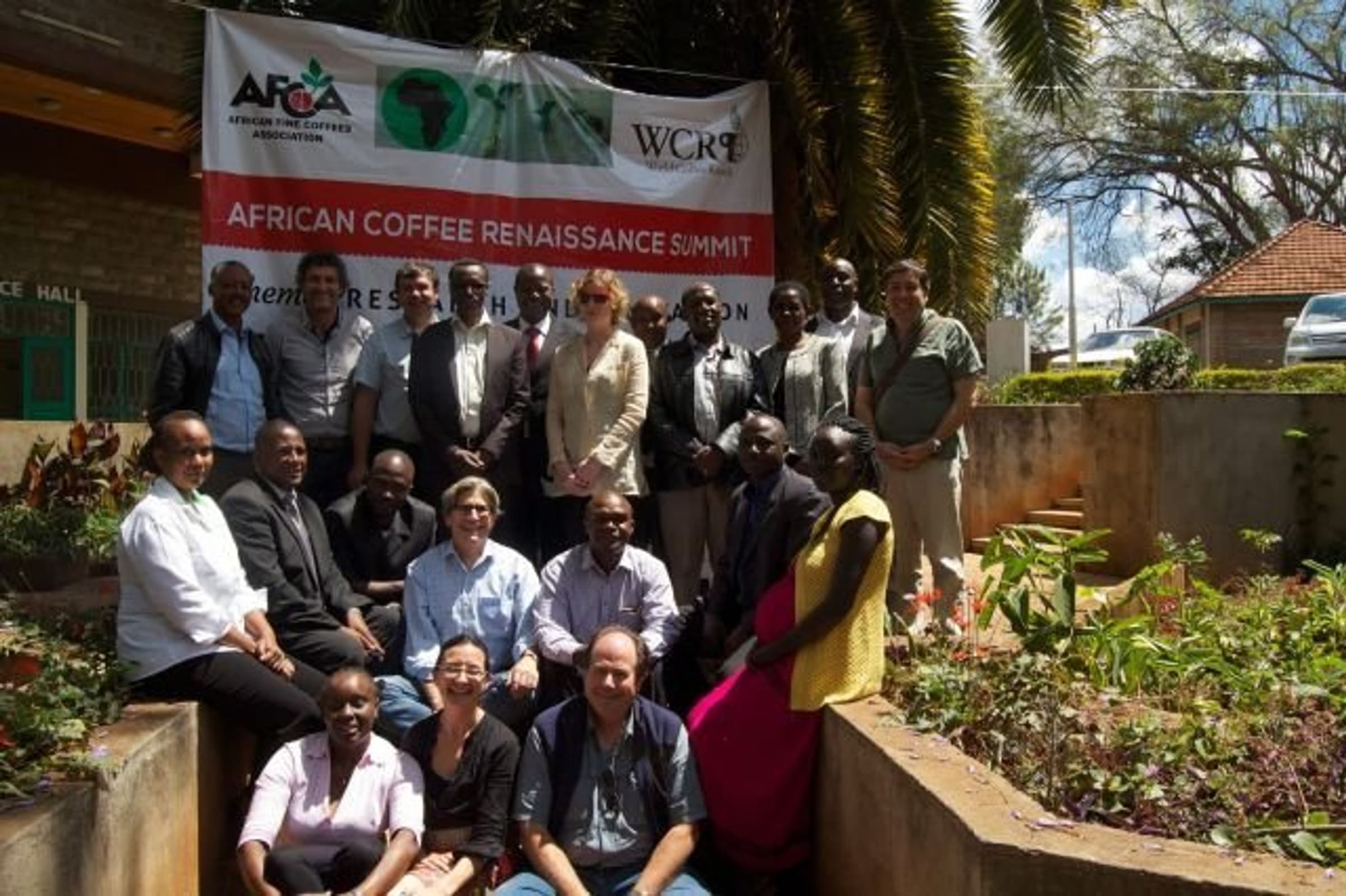
African Coffee Renaissance Summit Proceedings
In October 2015, 55 representatives from coffee research institutions, coffee companies, national bodies, development organizations, and finance institutions came together in Nairobi, Kenya for the African Coffee Renaissance Summit. The purpose was to collaborate on developing a climate-smart, market-driven strategy to raise coffee productivity while enhancing quality in Africa.
The summit brought together Africa’s leading coffee researchers with investigators from around the world to form a plan for getting existing, high performing varieties and soil treatments into the hands of African coffee producers, and extension services to support them, while simultaneously building a research platform for the future.
The effort was coordindated by World Coffee Reserarch in partnesrship with the African Fine Coffees Association.
What is the problem?
Coffee farming in Africa is a precarious enterprise for most producers, who frequently earn little or no profit from their hard work. Despite their traditional ability to produce high-quality coffee, African farmers have some of the lowest productivity in the world, with yields that have been declining or stagnant since the late 1990s. Prooduction has declined precipitously in the last four decades from nearly 30% of world production to only 13% in 2012/13. Coffee farm profitability has declined to the point that farmers are abandoning coffee as a crop.

A Coffee Breeding and Genetics Workshop took place prior to the summit at Coffee Research Institute Kenya with researchers from across Africa. Top from left: Ashenafi Ayano (Ethiopia), Benoit Bertrand (WCR), Christophe Montagnon (WCR), Celestin Gatarayiha (Rwanda), Chrispine Omondi (Kenya), Emma Sage (SCAA), unknown, Joseph Kimemia (Kenya), Hellen Kasalu (Zambia), Samuel Kamau (AFCA), Mario Fernandez (CQI). Middle from left: Rose ___ (CRI Kenya), Gilbert NDUWAYO (Burundi), Paul Mulemangabo (DRC), Tim Schilling (WCR), Caleb Mahoya (Zimbabwe), Ezechiel NDUWIMANA (Burundi), Jane Cheserek (CRI Kenya). Bottom from left: Wambui Waigano (AFCA), Hanna Neuschwander (WCR), Christopher von Zastrow (Starbucks)
Technology as a solution
To move the needle on coffee in Africa, we must do it collaboratively, and with good science. Two central factors limiting the productivity and profitability of coffee in Africa are infertile soils and the coffee plant itself—the age of the tree, and it’s genetic potential to resist disease and produce fruit. By focusing on these two technologies, we can increase both the productivity and profitability of coffee farms.
Variety focus: The renovation of coffee plantations can be done efficiently and profitably if producers adopt more productive varieties that are resistant to major diseases, have a good level of cup quality, and are well suited to their farming systems (for example, smallholders likely require varieties with “stability” traits, meaning they can tolerate certain lower-input practices or inconsistently applied good agricultural practices).
Soil focus: A coffee variety with high potential to produce good, abundant fruit will not produce enough fruit consistently over time if it doesn’t get the nutrition it requires. Therefore, soil fertility, conservation, and nutrition are critical components of any technological solution to the problem of profitability.
On-farm demonstration trials: Business-driven science
WCR and AFCA propose to achieve two goals simultaneously through the installation of hundreds of on-farm demonstration trials throughout Africa:
- Increase profitability through the introduction of new technologies—varieties and soil treatments—at a large enough scale that the farmer will see and feel a significant monetary return.
- Aggregate results over years and locations to recommend more effective, climate-smart technologies for extension and to inform future research.